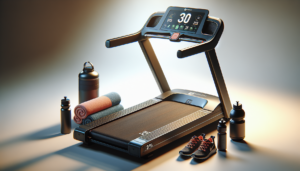Pre-workout supplements have become increasingly popular among fitness enthusiasts seeking to enhance their exercise performance and intensity. While these supplements can provide a much-needed energy boost, some users experience an unexpected side effect: the urgent need to use the bathroom. If you’ve ever wondered, “Why does pre workout make me poop?” you’re not alone. In this article, we’ll explore the common causes behind this phenomenon and discuss strategies to minimize digestive issues related to pre-workout consumption.
Introduction to Pre-Workout Supplements and Digestive Issues
What Are Pre-Workout Supplements?
Pre-workout supplements are dietary products designed to improve athletic performance, increase energy levels, and enhance mental focus during exercise. These supplements often contain a blend of ingredients such as caffeine, amino acids, creatine, and beta-alanine. While pre-workouts can be beneficial for boosting workout intensity, some users may experience digestive issues as a result of consuming these products.
Common Digestive Issues Linked to Pre-Workouts
The most frequently reported digestive issue associated with pre-workout supplements is the sudden urge to defecate, often referred to as “pre-workout poops.” Other gastrointestinal symptoms may include bloating, cramps, and diarrhea. These digestive disturbances can be inconvenient and uncomfortable, especially when they occur during or immediately before a workout session.
Understanding the underlying causes of pre-workout-related digestive issues is crucial for finding effective solutions and optimizing your supplement regimen. In the following sections, we’ll delve into the key ingredients and factors that contribute to this common problem.
Key Ingredients in Pre-Workouts That Affect Digestion
Caffeine: Energy Booster and Digestive Stimulant
Caffeine is a staple ingredient in most pre-workout supplements due to its ability to increase energy, alertness, and fat oxidation. However, caffeine is also known to stimulate the digestive system by promoting colonic motor activity. This stimulation can lead to increased bowel movements and the urge to defecate, especially when consumed in high doses or on an empty stomach.
Studies have shown that caffeine ingestion can significantly increase colonic motor activity and accelerate gastric emptying. This effect is more pronounced in individuals with a higher sensitivity to caffeine or those who consume it in larger quantities. If you suspect that caffeine is the culprit behind your pre-workout poops, consider opting for a lower-caffeine or stimulant-free alternative.
Magnesium: Essential Mineral with Laxative Effects
Magnesium is another common ingredient found in pre-workout supplements, often in the form of magnesium citrate or magnesium oxide. While magnesium plays a crucial role in energy production, muscle function, and bone health, it can also have a laxative effect when consumed in high doses.
Magnesium citrate, in particular, is known for its ability to draw water into the intestines, softening stool and promoting bowel movements. If your pre-workout contains a significant amount of magnesium, it may contribute to digestive issues and increased bathroom urgency. To minimize this effect, look for supplements with lower magnesium content or consider taking magnesium separately from your pre-workout.
Artificial Sweeteners: Flavor Enhancers with Side Effects
Many pre-workout supplements use artificial sweeteners like sucralose, acesulfame potassium, or aspartame to improve flavor without adding calories. While these sweeteners are generally considered safe, they can cause gastrointestinal discomfort in some individuals.
Artificial sweeteners are not easily digestible and can draw water into the intestines, leading to bloating, gas, and diarrhea. If you have a sensitive stomach or are prone to digestive issues, opting for a pre-workout with natural sweeteners or no sweeteners at all may help alleviate these side effects.
Factors Influencing Digestive Responses to Pre-Workouts
The Role of Hydration in Digestive Health
Proper hydration is essential for maintaining optimal digestive function and preventing constipation. When you’re dehydrated, your body draws water from the colon to compensate, resulting in harder, drier stools that are more difficult to pass. Consuming pre-workout supplements without adequate hydration can exacerbate digestive issues and increase the likelihood of uncomfortable bowel movements.
To support digestive health and minimize pre-workout-related issues, make sure to drink plenty of water throughout the day and especially before and during your workout sessions. Aim for at least 8 ounces of water per 20 minutes of exercise to keep your body well-hydrated and your digestive system functioning smoothly.
Timing and Dosage: How They Affect Digestion
The timing and dosage of your pre-workout supplement can significantly impact your digestive response. Taking pre-workout on an empty stomach can intensify its effects, including the stimulation of bowel movements. This is because the ingredients are absorbed more rapidly without food to slow down the process.
To minimize digestive discomfort, consider taking your pre-workout with a small meal or snack containing both carbohydrates and protein. This will help buffer the effects of the supplement and provide sustained energy throughout your workout. Additionally, starting with a lower dosage and gradually increasing it as your body adapts can help reduce the likelihood of adverse digestive reactions.
Importance of a Pre-Workout Meal
Consuming a well-balanced pre-workout meal can not only provide the necessary fuel for your exercise session but also help mitigate digestive issues associated with pre-workout supplements. A combination of complex carbohydrates, lean protein, and healthy fats can slow down the absorption of the supplement, reducing the risk of sudden bowel movements.
Some examples of pre-workout meals include:
- Oatmeal with a scoop of protein powder and a handful of berries
- A whole-grain wrap with turkey, avocado, and spinach
- Greek yogurt with granola and sliced almonds
Experiment with different pre-workout meal options to find what works best for your body and digestive system. Be sure to allow at least 30-60 minutes between eating and taking your pre-workout supplement to ensure proper digestion.
Strategies to Minimize Digestive Issues
Choosing Stimulant-Free Pre-Workouts
For individuals who are particularly sensitive to caffeine or other stimulants, opting for a stimulant-free pre-workout can be an effective solution. These supplements typically contain ingredients like beta-alanine, citrulline malate, and betaine anhydrous, which can enhance workout performance without the digestive side effects associated with caffeine.
When selecting a stimulant-free pre-workout, be sure to read the label carefully and choose a product from a reputable brand. Look for supplements that have been third-party tested for purity and potency to ensure you’re getting a high-quality product.
Gradual Introduction of Pre-Workout Supplements
If you’re new to pre-workout supplements or have a history of digestive issues, it’s essential to introduce these products gradually. Start with a half serving or even a quarter serving to assess your tolerance and monitor any adverse effects. As your body adapts to the supplement, you can slowly increase the dosage until you find the optimal amount that enhances your performance without causing digestive distress.
Be patient and give your body time to adjust to the new supplement. It may take a few weeks of consistent use before you can comfortably tolerate a full serving without experiencing unwanted side effects.
Consuming Pre-Workout with Food
As mentioned earlier, taking your pre-workout supplement with a small meal or snack can help minimize digestive issues by slowing down the absorption of the ingredients. This strategy is particularly beneficial for those who are prone to stomach discomfort or increased bowel movements when taking pre-workouts on an empty stomach.
When choosing a pre-workout meal, opt for easily digestible foods that won’t sit heavily in your stomach. A combination of simple and complex carbohydrates, along with a moderate amount of protein, can provide sustained energy without causing digestive distress. Some examples include a banana with a handful of nuts, a small bowl of oatmeal with protein powder, or a rice cake with almond butter.
Conclusion: Understanding and Managing Pre-Workout Digestive Issues
Summary of Key Points
Pre-workout supplements can be a valuable tool for enhancing athletic performance and increasing workout intensity. However, for some individuals, these products can lead to digestive issues, including the urgent need to defecate. By understanding the key ingredients and factors that contribute to these side effects, you can make informed decisions about your supplement regimen and take steps to minimize digestive discomfort.
Some of the most common culprits behind pre-workout-related digestive issues include:
- Caffeine, which stimulates colonic motor activity and can lead to increased bowel movements
- Magnesium, particularly in the form of magnesium citrate, which can have a laxative effect in high doses
- Artificial sweeteners, which can cause bloating, gas, and diarrhea in some individuals
To minimize the likelihood of experiencing these side effects, consider the following strategies:
- Choose stimulant-free pre-workouts or opt for lower-caffeine alternatives
- Introduce pre-workout supplements gradually, starting with lower dosages
- Consume your pre-workout with a small, easily digestible meal
- Stay well-hydrated before, during, and after your workouts
Personalizing Your Pre-Workout Routine
Ultimately, the key to successfully incorporating pre-workout supplements into your fitness routine lies in understanding your own body’s unique responses and needs. What works for one person may not work for another, so it’s essential to experiment and make adjustments based on your individual experiences.
If you consistently experience digestive issues with pre-workout supplements, don’t hesitate to explore alternative options or consult with a healthcare professional. Remember, the goal is to enhance your workout performance and overall well-being, not to cause discomfort or compromise your digestive health.
By staying informed, listening to your body, and making strategic choices, you can harness the benefits of pre-workout supplements while minimizing the risk of unwanted digestive side effects. With a personalized approach and a commitment to optimal nutrition and hydration, you’ll be well on your way to achieving your fitness goals without letting digestive issues stand in your way.






